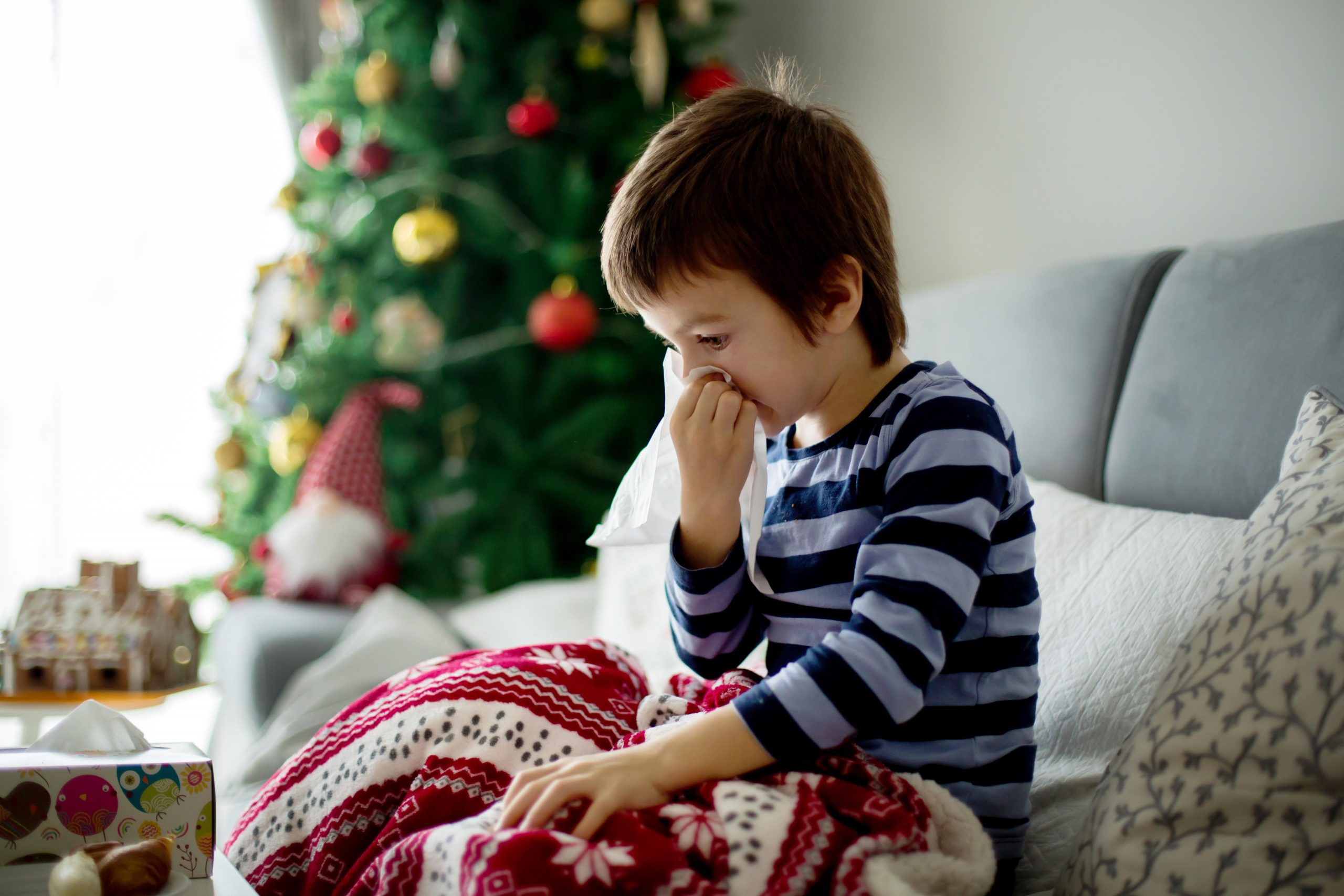Christmas tree syndrome: How to tell if you're allergic to your Christmas tree
Could your festive fir be making you poorly?

It's (almost!) time to deck the halls and trim your tree but beware you - and your loved ones - may well be struck down with Christmas Tree Syndrome.
Got the sniffles after stashing the kids' Christmas toys under the tree? Even though it's winter, the traditional centrepiece of any festive living room can cause classic spring hay fever symptoms as it harbours mould, and the longer you have the tree up, the worse it can be.
This is because, while the mould is naturally occurring, bringing the tree inside creates the perfect conditions for it to grow rapidly.
More than a third of Brits suffer from an increase in hay fever-like symptoms at Christmas, according to a poll for Prevalin Allergy, and sadly it's real trees that are the culprits.

Dubbed 'Christmas Tree Syndrome', symptoms of this festive health complaint include itchy noses, watery eyes, wheezing, coughing, chest pains, and insomnia, and can affect adults, children and even babies alike.
According to Boots Pharmacist Angela Chalmers: 'Christmas Tree Syndrome is caused by mould spores growing on the Christmas tree which then disperse around your home in the air, these can lead to problems when breathed in.'
Angela advises to look for symptoms such as itchy, sore, watery eyes, a blocked or runny nose and a persistent cough or wheeze.
GoodtoKnow Newsletter
Parenting advice, hot topics, best buys and family finance tips delivered straight to your inbox.
It's worth noting that the symptoms can present a few weeks after the tree has been put up.
Angela says: 'This is because the mound spores grow and thrive in our warm central heated homes.'
To prevent your family from sneezing their way through the seasonal period here's a few things you could do...
'Consider moving the tree into a cooler, separate room where you can close the door,' suggests Angela. 'Or choose an artificial tree, but don't forget to hoover off any dust if you are bringing it back down from the loft.'
If you are concerned about the symptoms of anyone in your family, speak to your local pharmacist or GP for advice.
Anna Bailey has been the editor of GoodtoKnow since 2018. Before joining the team she was Features Editor at MSN UK, where she oversaw Family Health and Days Out. Previously, she was Digital Lifestyle Editor for the broadcaster UKTV, and Lifestyle Editor for ITV.com. Anna studied Multi-Media Journalism at Bournemouth University and went on to gain her NCTJ and NCE journalism qualifications. Anna is responsible for driving the direction and editorial strategy of Goodto. A mum and experienced baby product tester, she is passionate about providing safe, trustworthy, and relatable advice for families of all kinds.